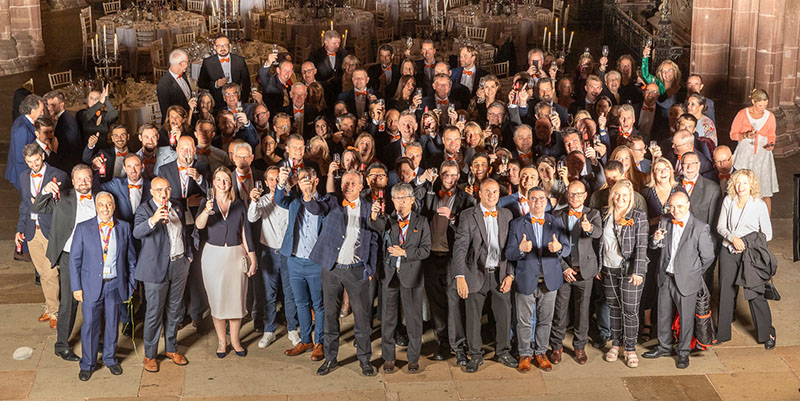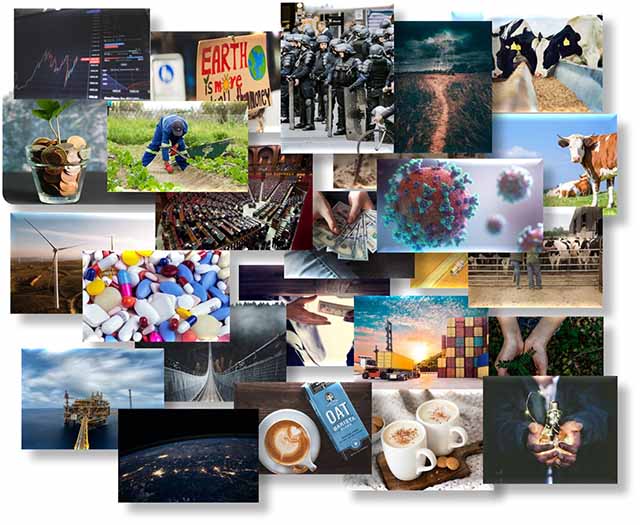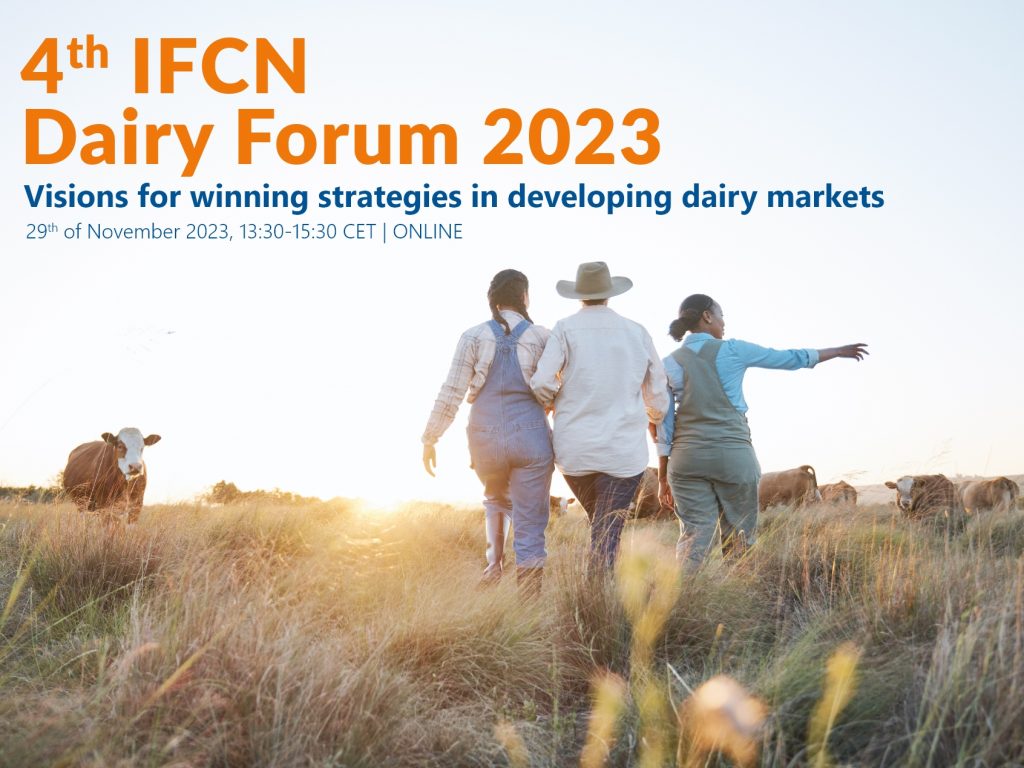The International Farm Comparison Network (IFCN) invited the key players in the global dairy industry for the 21st time to its annual IFCN Supporter Conference. This year’s conference evolved around the topic of transformation of the sector in two ways: firstly, the sector needs to earn the licence to operate by pursuing high sustainability standards and secondly, by convincing the current and future generations of the benefits of milk. The hybrid event took place from September 25th to 28th in Chester, UK with more than 330 participants (live and online).
The last year was characterised by extremes, on the one hand side record high milk prices almost all around the world, and on the other side, high production costs especially triggered by the extraordinary prices for energy, fertiliser, and feed. In the end, the increase in milk price proved to be higher than the increase in production costs and many farmers around the world enjoyed high farm incomes. Nevertheless, the volatility of prices, weather anomalies, and uncertainty about the overall political agenda throughout the year did not trigger the same increase in milk production as seen in the previous years. For the first time in decades, the increase in milk volume had been lower than the increase in world population, leading to a decline in per capita milk consumption. Erik Elgersma, strategic analyst, summarised the current situation as follows: “Milk is getting more expensive because of more purchasing power of more people and less milk volume increase, that means that the battle for milk will be global because there is simply no space to produce more milk.” Last year clearly showed that economics was not the main driver of milk production anymore, but that the sector has to transform in order to cope with multiple challenges and uncertainties. As Lord Deben, member of the House of Lords and Chairman of the Climate Change Commission for over 10 year, put it: “It is proved that climate change is happening and it is happening faster than predicted, so we have to act even faster. At the same time, milk is a nutritious product and environmentally friendly, but farmers have to fight more for their product.” He reminded the farmers and the sector “to move on in order to stay on and to secure a future for our children and grandchildren.”
In order to follow this path, The UK has developed the UK road map as a guideline to unify the industry and define the direction to go. John Allen from Kite explained “we need this road map to engage the farmers and the industry, and to show the public what we are doing”. Similarly, Roxi Beck from Phibro highlighted that the future consumers, also called “Generation Z” making up one third of the consumers globally with an economic power of 33 trillion USD by 2030, needed to be understood. She continued: “This future generation is different from the consumers today, and we must have their needs in mind and communicate more clearly what our product can do for them.”
Looking into this future, Hayley Campbell-Gibbons, head of sustainability from Kite Consulting, emphasised: “Sustainability is an investment and not just a cost. It will be a prerequisite, and a reduction in carbon emissions has to be delivered so that dairy is perceived as a good product.” Chris Brown representing the supermarket chain ASDA could only support this by stressing that “sustainability was a qualifier nowadays and needs to be done in order to be able to sell a certain product”.
All speakers agreed that it was important to focus on sustainability and especially on the reduction of the carbon footprint, though the ideal road to achieve this goal was not necessarily the same. Mike Jerred from Cargill strongly suggested that “it would be better if the industry sets up these standards before the standards will be set up others”, mainly governments. Tara McCarthy from Alltech on the other hand favoured public private partnerships because “if they together get it right, then there is a profit for all and we work together for a planet of plenty”.
In conclusion after three days of discussion, the participants were strongly of the opinion that the dairy sector was prepared to win the future, though this was a never ending progress and requires life-long learning. We have to build on value creation, data, authenticity, and communication. The dairy sector has the ability to deliver!









